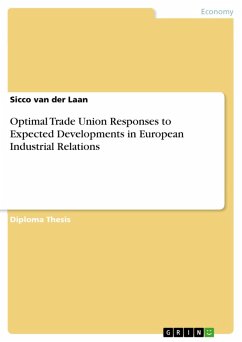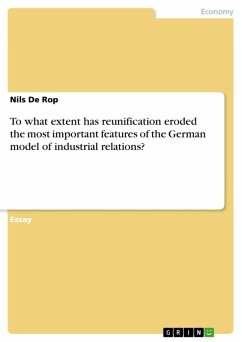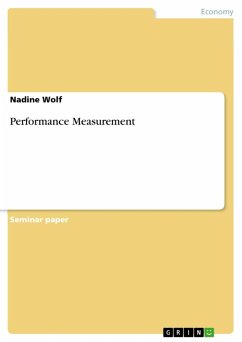Diploma Thesis from the year 1999 in the subject Economics - Industrial Economics, grade: 8/10 (cum Laude), Maastricht University, course: University of Maastricht, language: English, abstract: While contemporary writings on industrial relations debate endlessly concerning possible national improvements or international convergences of unions and labour systems, few if any make the attempt to move on from a given expectation and debate optimal responses by the parties involved. Keeping the EMU convergence criteria and the increasing competitive pressure of a global market in mind, I make clear predictions about my expectations for the future of European industrial relations. As it stands, the trade unions throughout Europe are not in an optimal position regarding the future of collective bargaining at any level, as they are seen as main culprits in the stagnation of competitive advance. The ideological advance and economic implementation of neo-liberalism has clearly limited their negotiating power at the bargaining table, and dwindling membership rates are proof of decreased trust and confidence by employees everywhere. It therefore lies in the unions own hands to optimally adapt to the situation. Optimal response, in my opinion, is to converge interests and actions in a modern way. This modernity is reflected by not fighting the developments, but moving with them, and creating an optimal stance in future dialogue and representation. The unions cannot expect much support from the national governments in this transformation, so they must re-orientate their expectations and demands to a level both acceptable to the other social partners and beneficial for their own members. Implementing new kinds of services for the members and becoming involved in the development of a European system of social welfare are but two examples. The fundamental idea behind any such modernisation, however, is that unions must become potential representatives for all kinds of workers, whether unemployed or highly-skilled, and not only the traditional middle-class employed. Only then can the unions throughout Europe expect to remain respected as serious social partners and players, albeit in a different way than in the post-war decades. [...]
Dieser Download kann aus rechtlichen Gründen nur mit Rechnungsadresse in A, B, BG, CY, CZ, D, DK, EW, E, FIN, F, GR, HR, H, IRL, I, LT, L, LR, M, NL, PL, P, R, S, SLO, SK ausgeliefert werden.









